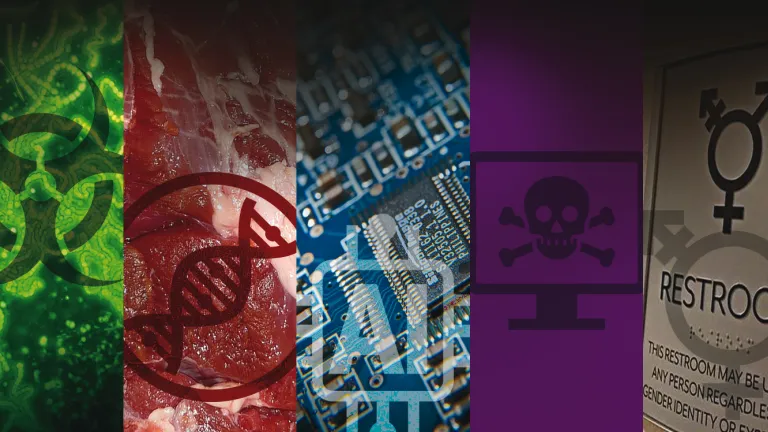Should Christians Marry Robots?

With the advent of Artificial Intelligence, are we sitting on the precipice of a utopian new world of robotics or a dystopia where humans are rendered irrelevant? There is a major shift in the definitions of what makes a man and woman and what makes up a family.
How far off are we from the key question, “What defines a human being?” Will there come a time in the near future when robots, androids and cyborgs—which will almost perfectly mimic human beings in most ways—have to be taken into consideration?
Technology made it possible for Wilber and Orville Wright’s first flights in December, 1903 near Kitty Hawk, North Carolina. Just 66 years later, July, 1969, Neal Armstrong and Buzz Aldrin walked on the moon. In a time when knowledge doubles every 13 months, how far away is the possibility of a robot being developed which is indistinguishable from a human? It seems so strange to even have to consider a time when humans and robot-type beings would intermingle.
What about intimacy and marriage?
While it is not currently legal for robots to marry humans, some experts believe it could become a reality in the future. British researcher, Dr. Levy, predicts that by 2050 robots and humans may be able to legally marry in the United States. The idea of romantic relationships between humans and artificial creations is an ancient one. In second-century-A.D. Greece, there was the myth about Pygmalion; he fell in love with an ivory statue, and Aphrodite gave it life.
From an article at Forbes.com published March 24, 2024 titled, “A Psychologist Explains Why It’s Possible to Fall in Love With AI,” the writer states: “Human-AI relationships are no longer science fiction. With the AI market projected to soar to a staggering $407 billion by 2027, the fusion of artificial intelligence into our daily lives has become inevitable. In this era of change, AI is also reshaping social interactions and, seemingly, the way we love. As technology continues to evolve, so do the dynamics of human-AI relationships.”
The author continues: “With virtual assistants and chatbots being able to simulate meaningful human interactions, AI has evolved far beyond mere functionality. It appears that humans are not only capable of forming deep emotional connections with AI but can even experience romantic love towards it.”
Are we as Christians prepared to be faced with this new world, and can we answer the moral questions which will result? How should we view cyborgs, robots, and androids? What about marriage to one of these “beings”?
Scientists are telling us the reality of human-like robots is here, and yet we can naively assume it is something far off and distant. Of course, we understand robots and androids are wholly like machines and they are programmed like computers. A cyborg would have flesh and blood with mechanical parts to enhance it or vice versa. Most of these concepts in robotics and the use of human parts with mechanical parts in the cyborg-type, still fall largely in the realm of science fiction. However, great progress is being made in prosthetics for limbs, organs and bionic legs.
Should someone interact sexually with these type “beings” or machines? No. Such things would still fall within the realm of lusting, and would be like using pornography. It would just be a more sophisticated virtual reality pornography, which is against God’s instructions. One could come to adore such creations, and in this way, it would be a type of idolatry by putting it ahead of what God commands in His laws.
What does Jesus say?
Jesus said in Matthew 5:27-28: “You have heard that it was said to those of old, ‘You shall not commit adultery.’ But I say to you that whoever looks at a woman to lust for her has already committed adultery with her in his heart.”
Fornication (not just adultery) would be forbidden as well, based on the usual moral grounds regarding sex outside of marriage. Participation in such things would fall far outside of what Jesus Christ taught as right. If one lusts in their heart, either when married or single, it is a sin, and sin is the transgression of the law, and the wages of sin is death (1 John 3:4; Romans 6:23).
Should a person marry such “beings”? God created the institution of marriage between two flesh and blood human beings, Adam and Eve: “And Adam said: ‘This is now bone of my bones and flesh of my flesh; she shall be called Woman, because she was taken out of Man.’ Therefore, a man shall leave his father and mother and be joined to his wife, and they shall become one flesh” (Genesis 2:23-24).
God’s intent is to show marriage is between a flesh and blood man and woman, and Jesus reiterated what was established by God in Eden (Matthew 19:4-6). There is no intent with God’s instructions that marriage is between flesh and blood and metal or partly flesh. Of course, it goes without saying, any human being with a prosthetic appendage is still human, and they would be excluded from any moral question concerning marriage.
God intends His people to remain pure and unspotted from this evil world, which is constantly under the influence of the Devil misleading the human race. God expects us to become perfect like our Father in heaven (Matthew 5:48).
Those called now are the children of God made alive by the Holy Spirit imparted at baptism and the laying on of hands. We do not know what we will be like in the resurrection, but we know we’ll be like Jesus Christ—we will see Him as He is (1 John 3:1-2)!
The apostle John, then instructs us: “And everyone who has this hope in Him purifies himself, just as He is pure” (1 John 3:3).





